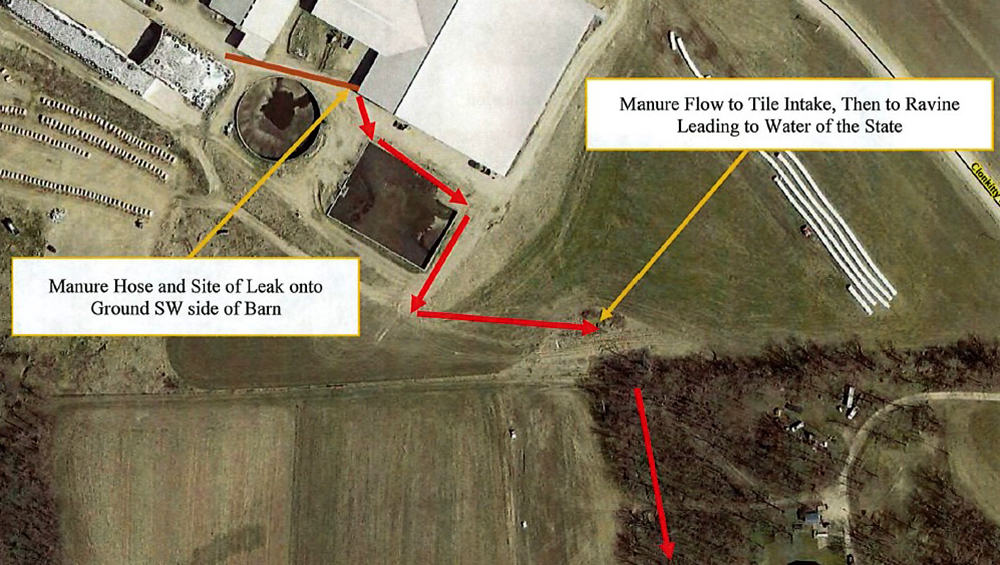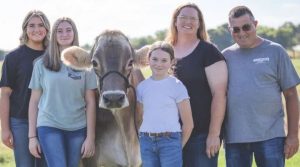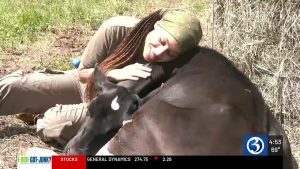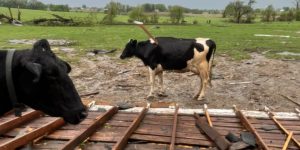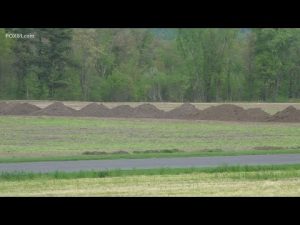
A northeast Iowa dairy farm that has repeatedly leaked manure-contaminated water onto neighboring properties and into a stream during the past five years might face stiffer penalties than what state regulators commonly impose.
After two more such incidents this year at Regancrest Holsteins near Waukon, the Iowa Department of Natural Resources recently referred the violations to the state Attorney General’s Office, which can seek fines in court that exceed the $10,000 limit of what the DNR can render administratively.
“It’s a sensitive area up there,” said Brian Jergenson, a senior DNR environmental specialist who noted the porous and hilly terrain of Allamakee County and the department’s repeated efforts to prevent manure discharges from the site. “We’ve had those numerous spills. It’s not that we’re throwing our hands up or anything, but we felt it was appropriate at this point to take this a step higher.”
The DNR’s investigations into manure spills can result in violation notices and administrative fines, especially if manure reaches a waterway. The incidents are infrequently referred to the attorney general’s office for potential litigation.
DNR records show three other manure-related referrals to the office in the past decade that involved other livestock producers. Those litigations resulted in fines of $46,000, $23,000 and $15,000, according to court records.
State law limits the DNR’s administrative fines to $10,000, but livestock producers can also be forced to pay restitution to the state for fish kills that can total many thousands of dollars more.
The regulatory troubles for Regancrest began in 2018 after an expansion and the installation of a new manure pumping system, according to DNR records. The system is meant to move manure from cattle confinement buildings to outdoor storage basins.

flowed into a nearby ravine and stream.
(Photo courtesy of Iowa DNR)
In February 2018, someone made an anonymous complaint to the DNR that manure from the site had flowed onto a neighboring property and into a ravine but didn’t go into a waterway, DNR records show. Bill Regan, who owns the facility, told the department that the manure release was the result of a clog in the pumping system that he attributed to “improper use” of that system by his employees.
An inspection of the site later that month by the U.S. Environmental Protection Agency found that the size of the operation — about 990 dairy cattle, 260 immature dairy cattle and 16 beef cattle — meant that it was operating as a large concentrated animal confinement operation. As such, it was required to prevent manure-laden stormwater from going into waterways.
The EPA gave Regancrest three options: permanently eliminate all pollutant discharges, obtain a permit that would govern the discharges, or reduce the size of the herd to fewer than 700 cattle. None of that has happened since, according to DNR records.
A primary concern is an open, outdoor feedlot that is part of the facility that has been used to raise calves and lacks barriers to keep stormwater from flowing off-site.
Twice more in 2018 there were clogs in the manure system that were attributed to employee errors that caused manure discharges onto neighboring properties, and during an inspection that summer the DNR noted no stormwater controls had been installed for the open feedlot. A nearby livestock producer reported that “cattle in a ravine below the operation refuse to drink (its) water due to contaminants.”
A DNR inspection in 2020 noted that the open feedlot still had the potential to contaminate the ravine, which can flow to a nearby waterway.
“The owner was informed to make sure any runoff from this area is controlled and to make sure all of the material has been removed and to no longer use this area to store any material that may result in a discharge to a water source,” a DNR inspection report said.
Citing the 2018 violations, the DNR fined Regancrest $1,500 last year.
Then in February 2023, the DNR investigated a complaint that contaminated water was flowing from the open feedlot into the ravine and found that the contamination had reached a tributary of nearby Jones Creek. The department issued another violation notice to Regancrest.
The final documented incident was in July 2023, when a Regancrest employee activated the manure transfer system but didn’t realize for about a half hour that part of the system had failed and was leaking manure, which flowed into another ravine and the creek tributary.
The DNR referred the matter to the attorney general’s office in October. The status of that referral is unclear because the office did not respond to a request to comment for this article. Regan declined to comment.
DNR records show Regancrest has developed training programs for its employees to help prevent future spills and has taken some steps to prevent spills from traveling through underground tiling.
